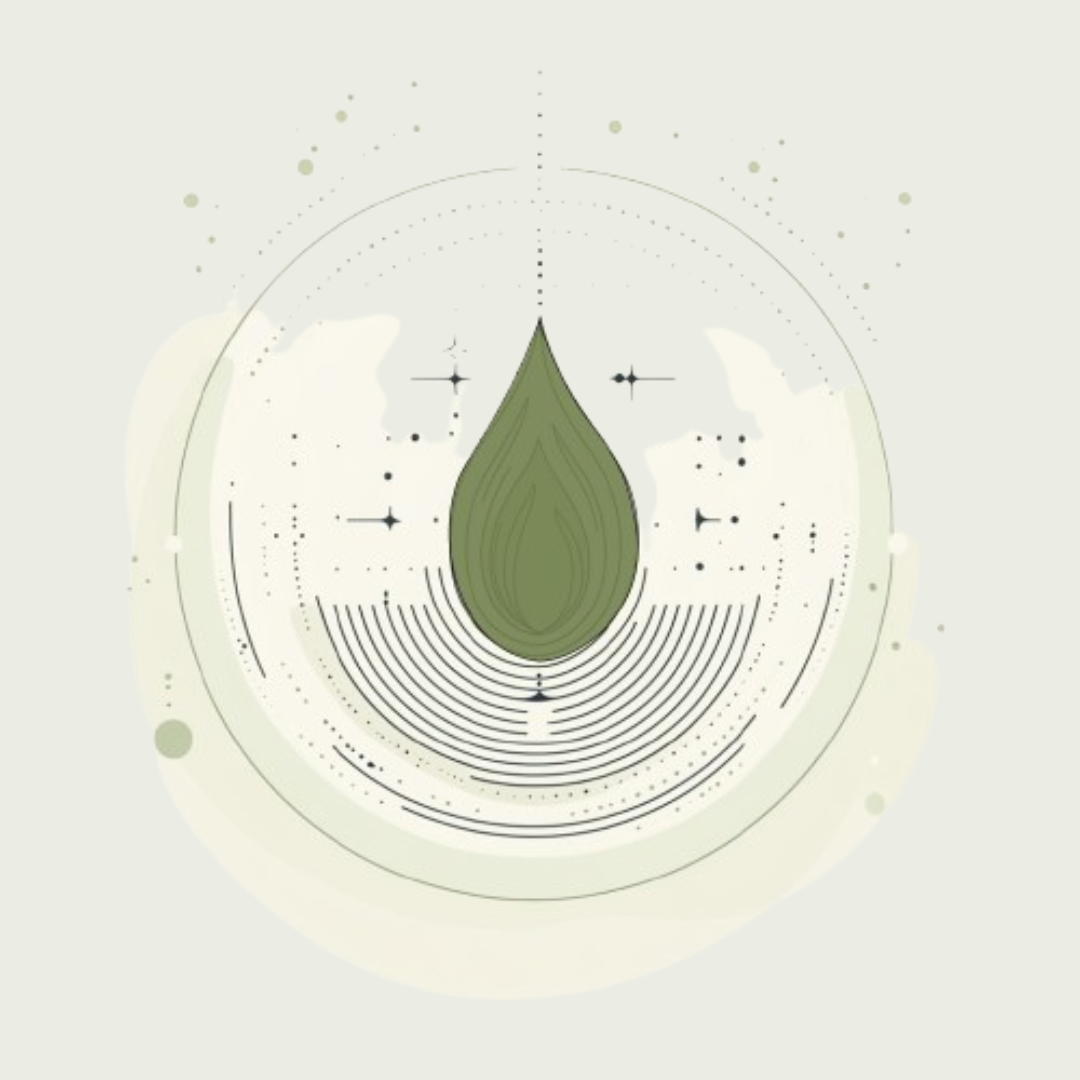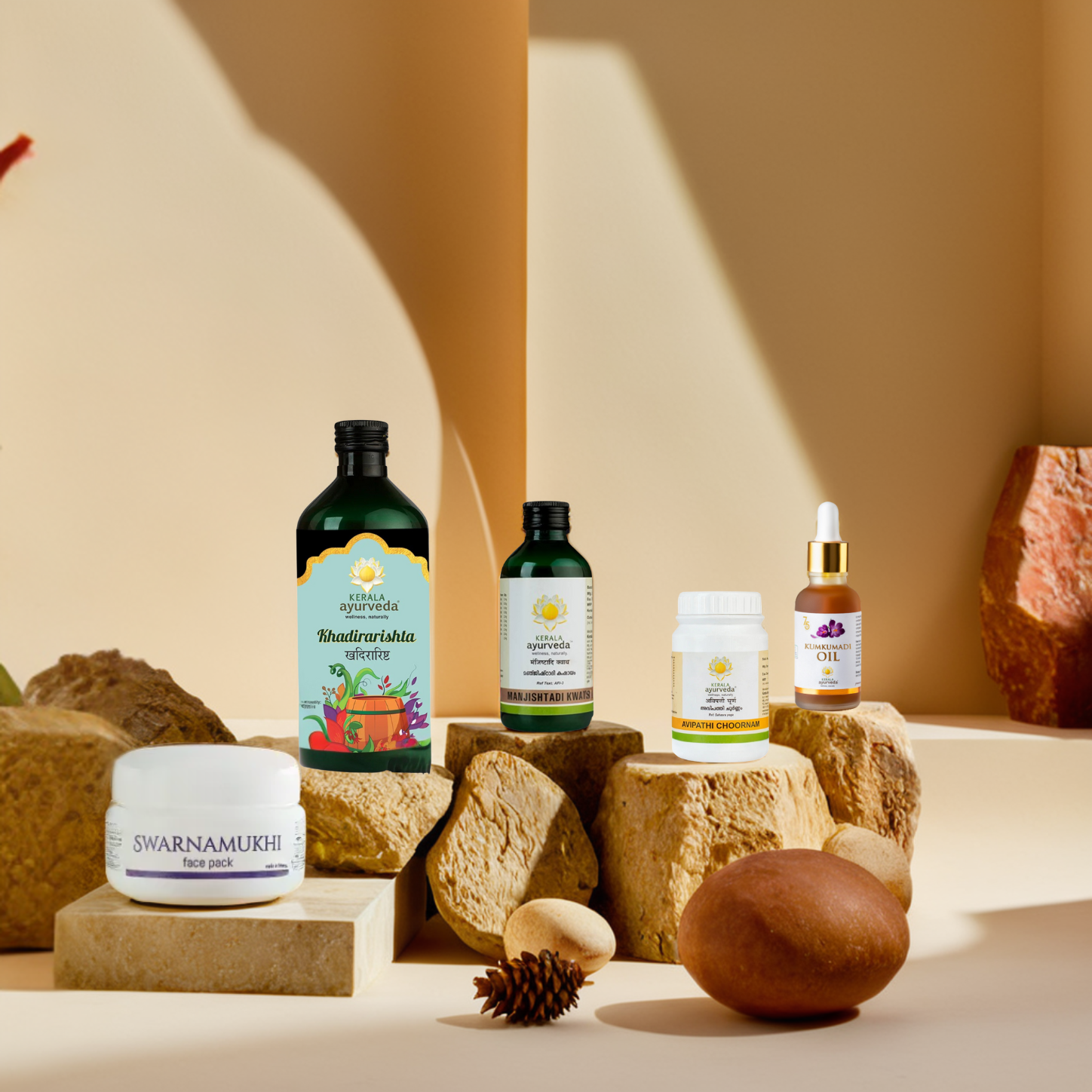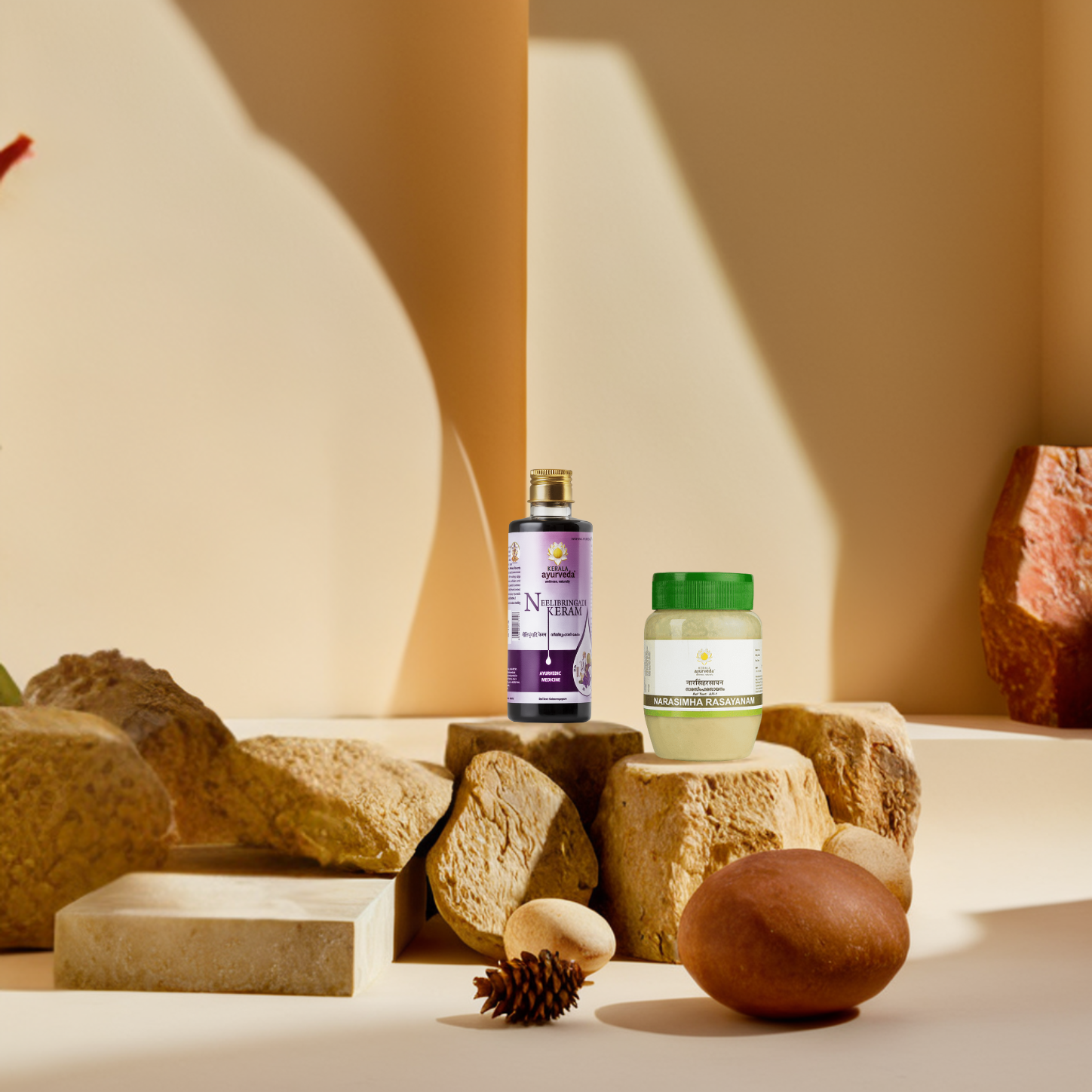We, as women, manage so much – work, family, friends, and personal goals. But let’s be honest, the days before your period can really throw things off. Yet, you keep going, because there’s always something that needs your attention. But here’s the thing: You shouldn't have to brace yourself every month; there are ways to feel better.
We instinctively reach for painkillers when the discomfort starts, but they can only do so much. They ease the cramps at most, but PMS is more than that. It’s the mood swings. The fatigue. The overwhelm that creeps in quietly.
And for all of that, we need more than a quick fix. That’s why many women are looking for natural ways to manage PMS.
Studies show there’s a real link between hormones, diet, and daily habits. Ayurveda builds on this, offering safe, sustainable ways to work with your body. Before we explore how, let’s start with the basics.
What is PMS?
Premenstrual Syndrome (PMS) is something many women experience, with symptoms that arise 7-10 days before the period starts. These can range from physical discomfort to emotional ups and downs.
The root cause lies in natural hormonal shifts, particularly fluctuations in estrogen and progesterone, the two main sex hormones. Understanding these hormonal changes can help you realize that these symptoms are part of your body’s natural rhythm. While it can feel extremely difficult at the time, most of these symptoms ease once your period begins.
How Can You Recognize PMS?
PMS can be different for everyone, but some common symptoms you might experience around that time include:
- Mood Changes: Feelings of irritability, anxiety, and occasional feelings of sadness or mood swings due to decreased serotonin levels (a happy hormone) in your body.
- Physical Discomfort: Low back pain, bloating of the stomach, joint and muscle pain, headaches, and breast tenderness.
- Other Signs: Temporary weight gain (often due to water retention or bloating), fatigue, changes in appetite, and food cravings can also be some evident signs of PMS.
How are PMS Symptoms Treated?
Painkillers and hormonal therapies are often the first line of treatment for PMS. While they can bring relief, they also come with side effects. Overuse of painkillers causes digestive issues like constipation or diarrhea, and hormonal therapies increase the risk of blood clots.
These aren’t risks most women want to face every month. That’s why there’s growing interest in treatments that do more than just manage symptoms, options that feel safer, more sustainable, and kinder to the body in the long run.
Simple shifts in diet, lifestyle, and herbal remedies can help bring back the balance in your hormonal health. Ayurveda takes it a step further by addressing the root causes. It works to balance fluctuating hormone levels, regulate stress, and make your cycle feel more manageable.
Natural Ayurvedic Herbs for PMS Relief
1. Ashoka
Ashoka (Saraca asoca) is one of the best Ayurvedic herbs to have on your side during PMS. It helps regulate your menstrual flow, reducing heavy bleeding, and its natural anti-inflammatory properties can ease period discomfort.
One simple way to add Ashoka to your routine is by taking Asokarishta Arishtam, a traditional Ayurvedic tonic. You can consume 1 tbsp (10 ml) twice daily after meals, diluted in 4 times water or as directed by an Ayurvedic physician.
2. Ashwagandha
If you’re tired of digestive issues before your period, you must consider Ashwagandha (Withania somnifera)! This herb supports hormonal balance and digestion during PMS. You can take Ashwagandha in capsule form (300-500 mg) per day for a daily boost.
Alternatively, you can try Sukumaram Kwath Tablet, a natural Ayurvedic solution that contains Ashwagandha, Jeera, and Yashtimadhu, as its primary ingredients. It eases cramps, bloating, and mood swings associated with PMS.
3. Shatavari
Shatavari (Asparagus racemosus) is especially helpful during PMS in easing irritability, cramps, and the general sense of heat or tension that often builds up before your period. It’s also known for its phytoestrogen content (hormone-balancing effects), which helps balance your estrogen levels and ease cramps, mood swings, and fatigue.
If you're looking for natural support during PMS, Evakalp Tablet is what you need. Packed with Shatavari, Ashoka, and Methi, it helps balance PMS symptoms, making your period experience a little smoother. Take one tablet twice a day or as directed by the physician for best results.
4. Aloe Vera
Aloe Vera could become your trusted ally during PMS. This versatile herb, known for its soothing properties, can help calm cramps and ease bloating, providing your body with the relief it needs.
If you're looking for a reliable herbal product that uses Aloe Vera, try Kumaryasava Asava. It combines Aloe Vera with herbs like Bala and Trikatu. You can consume 10 ml (1 tbsp) twice daily, after meals, or as directed by an Ayurvedic physician.
How Can You Further Support PMS Naturally?
Supporting your body through PMS is all about tuning in and giving it the care it needs. These symptoms are signals, not problems. With a little attention and consistency, you can move through each cycle feeling more at ease and in tune with yourself.
These natural remedies are a good place to start.
1. A Balanced Diet & Nutrition
A balanced diet can really help with your PMS symptoms by balancing your hormones, stabilizing your blood sugar, and giving you steady energy all day. Fiber-rich foods like whole grains (rice, wheat, quinoa), legumes (lentils, chickpeas), and fresh fruits and veggies (spinach, berries, broccoli) aid in healthy digestion and help avoid bloating during PMS.
Also, remember, eating small meals every 3-4 hours can keep your energy up and prevent irritability during PMS.
2. Incorporate Proper Sleep Patterns
It's tough to manage sleep these days, especially with busy schedules, stress and screens keeping us up late. But honestly, establishing a proper sleep routine is a game-changer.
Consistently getting 7-8 hours of sleep each night, at the same time, can help regulate your circadian rhythm, balance your hormones, and keep fatigue at bay. If you can make some changes to prioritize rest, we highly recommend you do it – your body will thank you.
3. Focus on Stress Management
When stress levels rise, the body responds with physical symptoms like muscle tension, a sudden increase in heart rate, and digestive disturbances.
Practices like Pranayama (mindful breathing) help to balance serotonin levels, your happy hormones, by lowering stress levels. For best results, aim to practice these simple techniques daily, even if it’s just for 10-15 minutes.
These movements offer a natural pathway to improved physical and mental health, paving the way for smoother, more balanced cycles effectively.
4. Regular Light Movement and Exercises
Gentle activities like yoga, pilates, walking, jogging, or swimming can reduce fatigue and ease irritability.
Specific yoga postures like Setu Bandhasana (Bridge Pose), Baddha Konasana (Butterfly Pose), and Adho Mukha Svanasana (Downward-Facing Dog Pose) can help relieve PMS symptoms by improving blood circulation, reducing stress, and easing cramps.
Consistency is key. By making it a regular part of your routine, you’ll notice gradual improvements in your overall well-being.
What Does Ayurveda Say About PMS and Menstruation?
Ayurveda looks at your period as a reflection of your overall reproductive health, guided by three natural energies (doshas) in your body.
- Kapha dosha steps in during the first half of your cycle (Ritukala), helping build up the uterine lining to support pregnancy.
- Vata dosha takes charge during your period (Rajakala), making sure everything flows and clears out properly, if you don’t conceive.
- Pitta dosha rules the second half (Rituvyateetakala), driving hormonal changes and blood circulation.
When these doshas are out of sync, PMS shows up with bloating, mood swings, cramps, and other symptoms. Simple tweaks like adjusting your diet, adding herbs like Ashwagandha or Shatavari, making small lifestyle changes, and even practicing yoga can help bring your body back into balance and make your cycle more manageable.
Conclusion
Living with regular PMS symptoms is challenging, but understanding its causes and natural treatment options empowers you to take control. Our holistic approach reveals how Ayurveda, proper diet, sleep, stress management, and gentle exercise ease PMS symptoms. You can restore balance and support your body's natural rhythms by integrating nutrient-dense foods, mindful meditation, and light movement.
Explore Kerala Ayurveda's range of natural remedies to alleviate PMS symptoms. Rooted in traditional Ayurvedic wisdom, our products aim to balance your body's doshas for optimal menstrual health. Explore to discover solutions that promote holistic well-being, or visit our clinics for personalized guidance.
FAQs
1. What Vitamin deficiency causes PMS?
Consuming Vitamin B, D, calcium, and magnesium supplements or food sources helps manage PMS symptoms due to their role in mood regulation and hormone balance.
2. How to cure PMS Naturally?
PMS isn’t a disorder. It’s a natural phase in the menstrual cycle where hormonal fluctuations can create temporary imbalances. These symptoms can ease naturally with simple dietary changes, herbal supplements (like Ashoka and Ashwagandha), stress management, regular exercise, and improving sleep quality.
3. What hormone fluctuations cause PMS?
PMS is primarily caused by fluctuations in estrogen and progesterone levels that affect serotonin, leading to mood swings, bloating, and fatigue.
4. What Foods Make PMS Worse?
Highly processed foods, excess salt, caffeine, alcohol, and sugary snacks can worsen PMS by increasing bloating, hormone imbalances, and mood swings.





